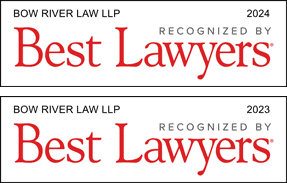- Home
- Services
- Constructive Dismissal
- COVID-19
- Discrimination / Human Rights
- Employee Sued by Employer
- Employment Contracts: Drafting / Review / Negotiation
- Employment Policy Drafting / Review
- Fiduciary Obligations
- Harassment / Bullying
- Independent Contractors
- Just Cause For Termination
- Lay-Offs
- Non-Competition / Non-Solicitation
- Professional Regulation
- Severance Review / Negotiation
- Union / Labour Law
- Workplace Investigations
- Wrongful Dismissal / Unjust Dismissal
- About
- Our Team
- Blog
- Call Now: 587-391-7601
- Contact Us
Fiduciary Obligations

“Fiduciaries” are people who hold positions of trust with the people they serve. Most Alberta employees are not fiduciaries of their employers, but some are. Fiduciary employees have significant responsibilities and potential liabilities to their employers. Bow River Law can help you determine if you are a fiduciary and to help protect you respecting any actions you have taken or intend to take that might upset your employer.
Fiduciary Obligation Services

Fiduciary Employees In Alberta
Employees can be fiduciaries to their employers in some cases. Generally speaking, fiduciary employees are ones the employer has a high level of vulnerability to. Fiduciary employees are usually ones that could cause substantial harm to their employer if they chose to do so during their employment or afterwards. Fiduciaries tend to be “key employees” near the top of the organizational structure, or employees who are considered the “face” of the organization with respect to some third party(s) the employer does business with such as its clients.
Fiduciary employees have special obligations to put the interests of their employers above their own. Misconduct during employment is generally more serious coming from a fiduciary than it would be from an ordinary employee. Fiduciaries are also more likely than ordinary employees to be held directly liable for bad or dishonest behavior. In a severe case, a fiduciary employee in Alberta could be required to pay millions of dollars in damages to their former employer for breaches of their fiduciary duties.

What are Fiduciary Employees Responsible For?
One common fiduciary liability is with respect to “non-solicitation” of the employer’s clients. Even if there is no written employment contract, a fiduciary employee that has left an employer is generally not allowed to solicit the business from former clients / customers of the former employer until a “reasonable time”. This rule is intended to protect employers from the employees it places a high amount of trust in, or who have a lot of sway over clients, suppliers, etc. A “reasonable time” is not the same in every case, and it depends on the facts of that specific case.

Cautionary Notes
- An Alberta fiduciary employee could be liable for a substantial amount of money for breaching fiduciary duties
- There is not generally a duty of fiduciary “non-competition” after employment ends, but certain obligations still dictate what a fiduciary can and cannot do
- Some fiduciary obligations to a former employer terminate over time, but some continue indefinitely
- If you think you might be a fiduciary, or you are being accused of breaching fiduciary duties, let us help you handle it
- A fiduciary taking action before getting legal advice can be a huge risk and a personal liability. Some things cannot be un-done
- If you are a fiduciary that has already made a mistake, legal advice or representation can often help you resolve it or minimize your risk going forward
- We are experienced litigators at Bow River Law, so if litigation with your former employer over alleged fiduciary breaches is necessary, we can do that for you as well
Fiduciary Employee FAQ
- What are my restrictions if I leave my employer and start competing?
Every employee has obligations to protect certain interests of their former employer, but certain management or client-facing employees, called “fiduciaries” have more substantial obligations. Usually these obligations include not soliciting former clients for a reasonable period of time after leaving, but usually you can compete. You could be personally liable if you are not careful with this, so you should speak to an employment lawyer first.
- A new company is looking to hire me, but I have a non-competition agreement with my former employer. What should I do?
It is exciting to have a new job opportunity, but non-competition agreements should be dealt with cautiously. There are creative ways to pursue new employment opportunities without exposing yourself to a lawsuit from your former employer, and an employment lawyer can help you find a solution.
